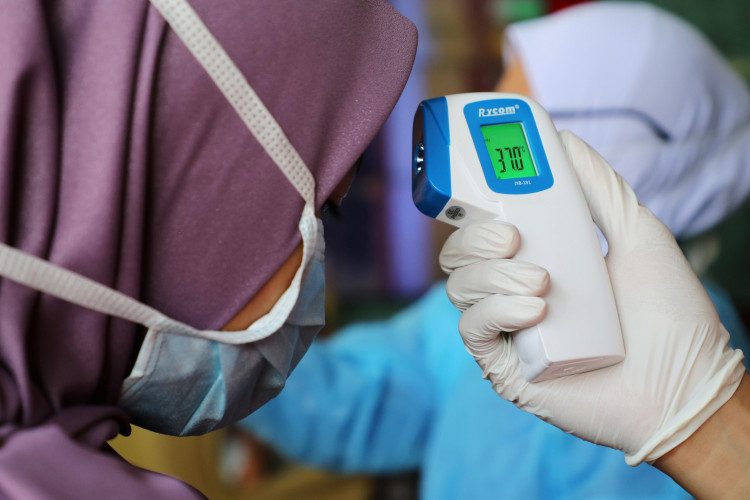The coronavirus outbreak is still on despite slowing infection numbers in China. Governments around the world are hard at work in ensuring that the virus will be contained by implementing stricter health and screening measures. The question is, do the existing screening methods work?
Study Suggests Airport Temperature Checks Inaccurate
A CNN investigation indicated on Wednesday that airport temperature checks in the United States did not detect a single Wuhan coronavirus case yet, raising questions about whether the current screenings in airports are helpful in detecting whether a person is infected or not.
So far, 11 airports in the United States make use of temperature checks as part of the screening process in finding out if a person is infected with the coronavirus. However, there are other symptoms that the temperature check cannot detect.
Furthermore, a study by British researchers that was published earlier this month suggested that temperature checks are not as helpful in detection as expected.
Associate director general of the Israeli Ministry of Health Dr. Itamar Grotto said results of a normal temperature from the method in question offers "false assurance" since some people with normal body temperatures may have yet to develop a fever or other symptoms.
Indonesia Says it is Still Virus-Free
Some experts have reportedly questioned Indonesia's claims that it remains coronavirus-free despite neighboring countries Malaysia and the Philippines confirming cases.
According to Aljazeera, Harvard University researchers suggested that Indonesia may have "undetected cases," further recommending that the country should enforce stricter coronavirus detection rules.
Indonesian hotspots are also known to welcome many tourists from Wuhan on a yearly basis, raising further doubts on the country's claims of having no infected patients. However, Indonesian health minister Terawan Agus Putranto said the study from Harvard researchers was "insulting."
Putranto added that Jakarta, the capital city, has not recorded a coronavirus case because of "prayers." Another official at the Indonesian health ministry, Achmad Yurianto, noted that the country is prepared should there be an outbreak.
MS Westerdam Coronavirus Case Raises Screening Concerns
Aside from the recent studies on temperature checks potentially being ineffective in the goal of detecting coronavirus cases accurately, the questions were further heightened by the recent confirmation that a passenger who disembarked from the MS Westerdam was infected.
During the weekend, Malaysia said an 83-year-old American female tourist who was a passenger at the MS Westerdam tested positive of the Wuhan coronavirus. The said cruise ship was allowed to dock in Cambodia after being turned away by five countries.
According to the TIME Magazine, Cambodian health officials and the ship's operator, Holland America Line, said proper screenings were implemented before passengers from the Westerdam were released.
It appears that at the time of screening, the woman did not show any symptoms such as fever, coughing, or difficulty breathing. However, she tested positive in two consecutive tests after she traveled to Kuala Lumpur from Silhanoukville.
Health experts now say that the case of the MS Westerdam passenger may indicate that there are no existing screening methods yet that are 100 percent effective in detecting the fast-spreading coronavirus.
Germany Screenings may have Failed to Detect CoViD-19 in Evacuees
A letter sent to the editor of the New England Journal of Medicine suggested that the symptom-based screening carried out for a group of people who were evacuated from China to Germany failed to detect the coronavirus in two people.
In the said letter published on Tuesday, German researchers concluded in their study that Germany's symptom-based screening was not effective in detecting two coronavirus cases despite the two people passing symptom-screening for CoViD-19.
A total of 126 people were on board the chartered flight to Frankfurt, Germany where the two confirmed cases were discovered.
It remains to be seen whether the existing screening methods performed in various countries to prevent the spread of the Wuhan coronavirus will prove completely effective in detection.





